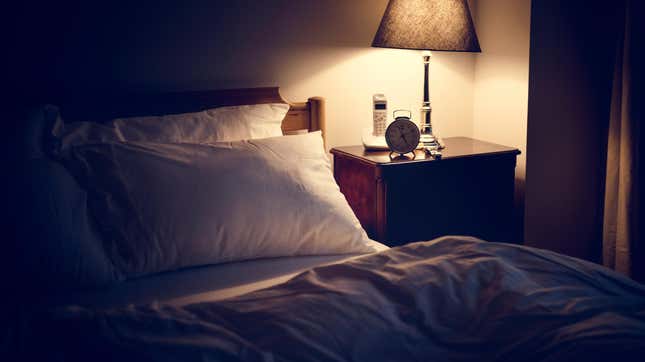
Getting enough sleep is refreshing for both you and your immune system, a new review of research out Monday suggests. A team found that sleeping fewer hours a night around the time of vaccination was associated with lower levels of vaccine-related antibodies, at least in some groups. More research is needed to understand the connection, but it could inform the health advice we give to those about to get vaccinated.
- Off
- English
The review was conducted by researchers in the U.S. and Europe, including at the University of Chicago. Some of the team had previously looked into the question, with their small 2002 study finding that intentionally sleep-deprived young and healthy men went on to have a reduced immune response to the flu vaccine. During the first year of the pandemic, they became interested in the topic again, reached out to other scientists, and started work on a meta-analysis of existing literature.
They looked at data from seven earlier studies, including several experimental trials. Overall, they found a noticeable association between reduced antibody levels and objective measures of short sleep duration in the days surrounding vaccination, defined as six or fewer hours of sleep a night. The team’s findings were published Monday in Current Biology.
Advertisement
There are some important caveats to the results. For one, the link between sleep and vaccine response was only statistically significant in men, not women. They also failed to find a link when they looked at self-reported sleep data, though that can be explained by people generally being bad at knowing how much sleep they get. But the studies that relied on objective sleep measures only looked at people 60 and younger, meaning there’s no clear data on older people. The research also only tracked people’s immune responses following immunization to influenza and the hepatitis A and B viruses.
Despite the gender gap in their findings, the authors believe that sleep deprivation can still affect women’s response to vaccination. They argue that past studies might have failed to confirm this link because they didn’t account for other factors that could affect the results, namely fluctuating hormone levels caused by the menstrual cycle, birth control, or menopause. At the very least, they say, more research needs to be done to better understand this and other unanswered questions.
G/O Media may get a commission
Advertisement
“We need much larger studies that control for the sex hormone environment in women in particular,” said lead author Karine Spiegel in a statement released by the University of Chicago. “We also need a better definition of how many days of short sleep duration affect the antibody response, and whether it is just before the vaccine, or also during and after. Large scale studies that consider behavioral, demographic and hormonal characteristics should provide new insights that will translate to measurable impacts on vaccine efficacy.”
It should be noted that some individual studies haven’t found a link between sleeping less and a lasting poor immune response to vaccination. Yet other studies, including trials, have found that sleep boosts our protection against catching common cold viruses. Getting a good night’s sleep is one of the best things we can do to stay healthy, so there’s no debate there. But if more studies continue to show this link, then a better vaccine response might be added to the long list of known benefits that comes from sleeping well.
Advertisement
“Vaccines are an important tool for preventing and reducing the impacts of infectious diseases, and we think that you may be able to implement a simple behavioral change—getting enough sleep—to derive an immediate benefit. It’s cheap, and there is no adverse effect,” said study senior author Eve Van Cauter in a statement.
Services Marketplace – Listings, Bookings & Reviews